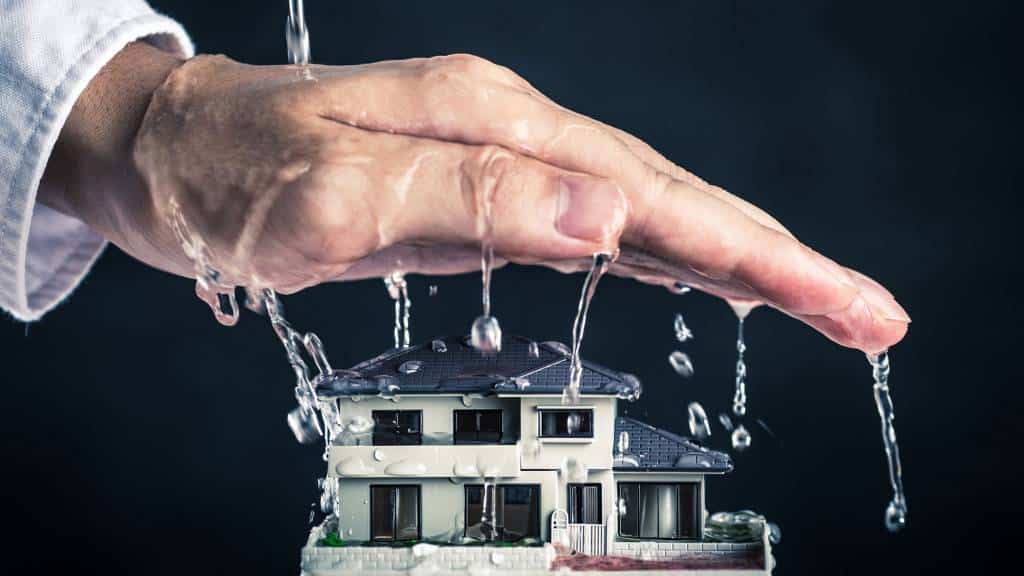Exploring the Top Reasons for Drips in The Home
Exploring the Top Reasons for Drips in The Home
Blog Article
What are your thoughts on How to detect water leaks in your home?

Leaks not only create waste of water however can also trigger unneeded damages to your residence and also advertise undesirable natural growth. By recognizing and looking for daily situations that create leakages, you can protect your house from future leaks and unnecessary damages.
Trespassing roots
The majority of water leakages start outside the residence instead than inside it. You could see wet patches or sinkholes in your lawn, and that might mean that tree roots are getting into water lines creating water to permeate out.
Corroded water systems
This might be the cause of discoloration or bending on your water pipes. If our plumbing system is old, think about replacing the pipes because they are at a greater risk of corrosion than the more recent versions.
Faulty Pipe Joints
The factor at which your pipes link is regularly the weakest web link in the waterline. Pipe joints can degrade over time, resulting in water leaks. The bulk of pipeline joints are not quickly noticeable. If you have noisy pipes that make ticking or banging sounds, especially when the hot water is activated, your pipe joints are most likely under a lot of stress. It is recommended to have your plumber examine your system once a year.
Instant temperature level changes.
Extreme temperature adjustments in our pipes can create them to broaden and contract unexpectedly. This growth and contraction may cause splits in the pipes, especially if the temperature level are below freezing. It would be best if you watched on exactly how your plumbing functions. The existence of the previously mentioned circumstances regularly indicates a high danger.
Poor Water Connectors
Sometimes, a leak can be triggered by loose hoses and pipes that provide your home appliances. More often than not, moving is what causes the loosened water Links. You could discover in the case of a cleaning equipment, a tube might spring a leak as a result of trembling during the spin cycle. In case of a water links leak, you may notice water running straight from the supply line or puddles around your devices.
Clogged Drains
Blocked drains pipes could be frustrating and inconveniencing, but they can in some cases end up triggering an overflow leading to break pipelines. Maintain removing any kind of materials that may drop your drains that might block them to prevent such inconveniences.
All the above are root causes of leaks but not all water leakages arise from plumbing leakages; some leaks could originate from roofing system leakages. All leaks should be fixed promptly to avoid water damages.
Leakages not only trigger waste of water however can also create unneeded damage to your residence as well as promote undesirable natural development. By looking as well as recognizing for everyday scenarios that trigger leakages, you can shield your residence from future leaks as well as unnecessary damage. Today, we will certainly look at six leakage causes that may be creating your pipelines to trickle.
At times, a leakage can be triggered by loose pipes and also pipes that supply your appliances. In situation of a water connections leakage, you may discover water running directly from the supply line or puddles around your appliances.
How To Check For Water Leak In Your Home
How To Check for Leaks
The average household's leaks can account for nearly 10,000 gallons of water wasted every year and ten percent of homes have leaks that waste 90 gallons or more per day. Common types of leaks found in the home are worn toilet flappers, dripping faucets, and other leaking valves. These types of leaks are often easy to fix, requiring only a few tools and hardware that can pay for themselves in water savings. Fixing easily corrected household water leaks can save homeowners about 10 percent on their water bills.
To check for leaks in your home, you first need to determine whether you're wasting water and then identify the source of the leak. Here are some tips for finding leaks:
Take a look at your water usage during a colder month, such as January or February. If a family of four exceeds 12,000 gallons per month, there are serious leaks.
Check your water meter before and after a two-hour period when no water is being used. If the meter changes at all, you probably have a leak.
Identify toilet leaks by placing a drop of food coloring in the toilet tank. If any color shows up in the bowl after 10 minutes, you have a leak. (Be sure to flush immediately after the experiment to avoid staining the tank.)
Examine faucet gaskets and pipe fittings for any water on the outside of the pipe to check for surface leaks.
Undetected water leaks can happen without the home or business owner even realizing. If you suspect a water leak, but not able to find the source. It is time to contact a professional water leak detection service, The Leak Doctor.
How To Find a Water Leak In Your Home
https://www.leakdoctor.com/blog/How-To-Check-For-Water-Leak-In-Your-Home_AE197.html

I stumbled upon that entry about How to Find Water Leaks when doing a lookup on the internet. Are you aware of somebody else who is involved in the topic? Be sure share it. Thanks so much for going through it.
Toilet overflow? Dial! Report this page